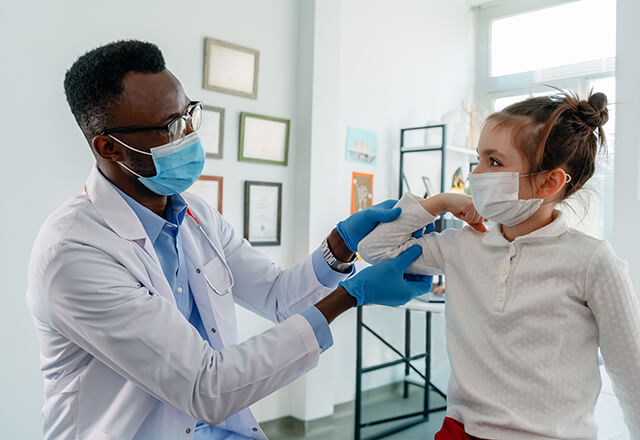
There may be confusion, and even wrong information, about clinical trials—studies of medical treatments and procedures that people volunteer to take part in. Liz Martinez, Research Participant Advocate at Johns Hopkins Medicine, clears up some of the most common myths she hears.
Myth: Trial volunteers are guinea pigs.
Fact: At Johns Hopkins Medicine, we believe participants are partners in clinical research, and we value them as a key part of the research team. Our Research Participant Advocacy Group is here to help participants if they have any questions or concerns.
Every clinical research study requires that study participants agree to take part in the research. That agreement is called “informed consent.” Informed consent includes a comprehensive document that provides all of the information necessary for someone to decide (or decline) to take part in the trial. The informed consent document explains the purpose of the study, describes all of the participant visits and clinical activities to be performed, and details the possible risks and benefits.
Myth: Clinical trials are dangerous because they use new practices and medicines.
Fact: Keeping trial participants safe is the top priority at Johns Hopkins Medicine. Before they begin, all clinical trials are reviewed by our institutional review board (IRB), which is made up of doctors, nurses, scientists, and community members who decide if the trial is safe and ethical to conduct. The interventions they receive have gone through rigorous laboratory and animal testing before being used in people.
The IRB does not just approve the study once at the beginning. All the data coming in is constantly reviewed. If there is a safety concern, the study is stopped and scrutinized to see if any changes are needed or the study should be stopped.
Myth: Taking part in a clinical trial may include painful or unpleasant parts.
Fact: Specific research activities vary by study and are described during the informed consent process. That means each participant will know what to expect before the clinical trial begins. The IRB ensures that the benefits and risks are carefully weighed and that the trial is reviewed to reduce any unnecessary discomfort or harm. If a research procedure is too painful, a research participant can decide to leave the study.
Myth: Everyone who wants to take part in a clinical trial may do so.
Fact: Each clinical trial has a set of criteria, such as age, health status, and other factors, that guide who can take part in a study. These requirements protect participants and help researchers understand if the effects they see are a result of the trial intervention.
Those who do not match up with criteria for a certain clinical trial may be eligible for others. Your doctor or the clinical research team may be able to help people find clinical trials that could be right for them.
Myth: Clinical trial participants don’t get the same level of care they get from their own doctors.
Fact: The care people receive in Johns Hopkins Medicine clinical trials is excellent. Trial participants often say that they appreciate the attention and level of care that study doctors and nurses provide. Participants get access to the latest technology and innovations available at Johns Hopkins Medicine. No one in a clinical trial will receive less than the best currently recommended care.
People who are thinking about participating in a clinical trial and who have questions may want to start by speaking with their existing health care providers.
Myth: My doctor has to refer me for a clinical trial.
Fact: Your doctor may not know about all the opportunities for clinical trials that are available to you. We recommend you visit our Clinical Trials at Johns Hopkins website to search for clinical trials that are currently active. You can also search clinicaltrials.gov to see a wide variety of clinical trials available at Johns Hopkins as well as throughout the country.
You may also want to check with condition- or disease-specific support groups in your area. They often know about clinical trials looking for volunteers.